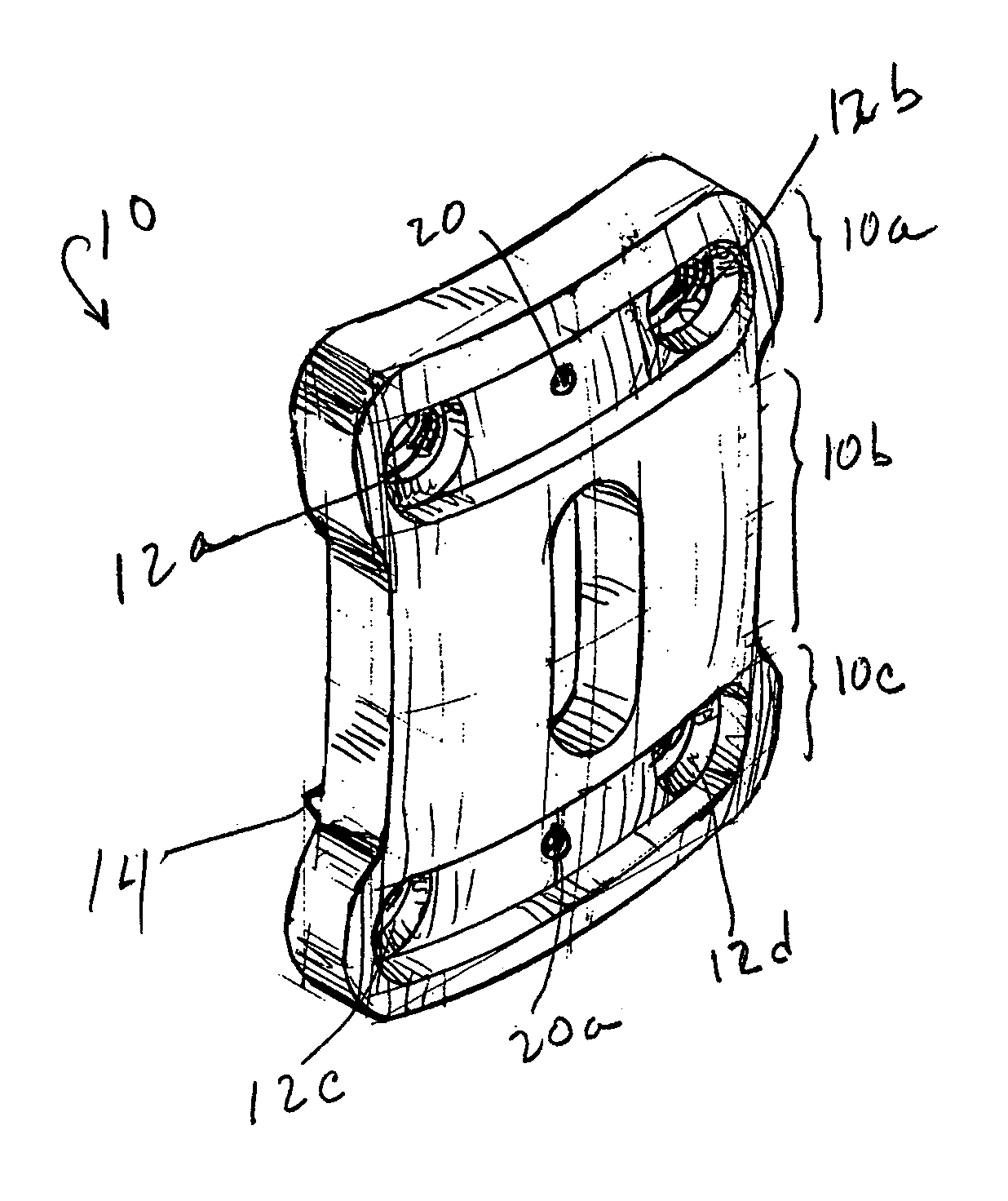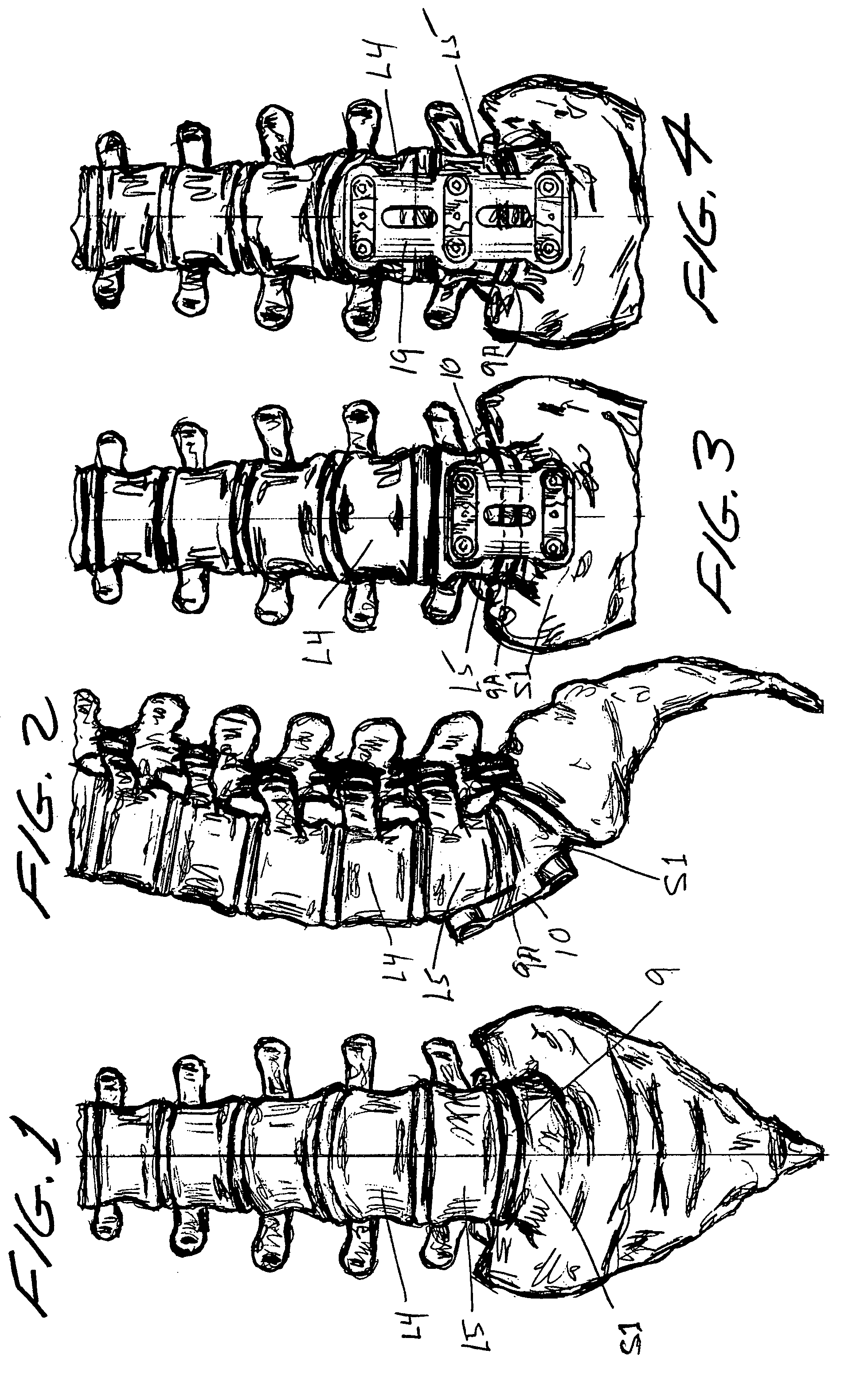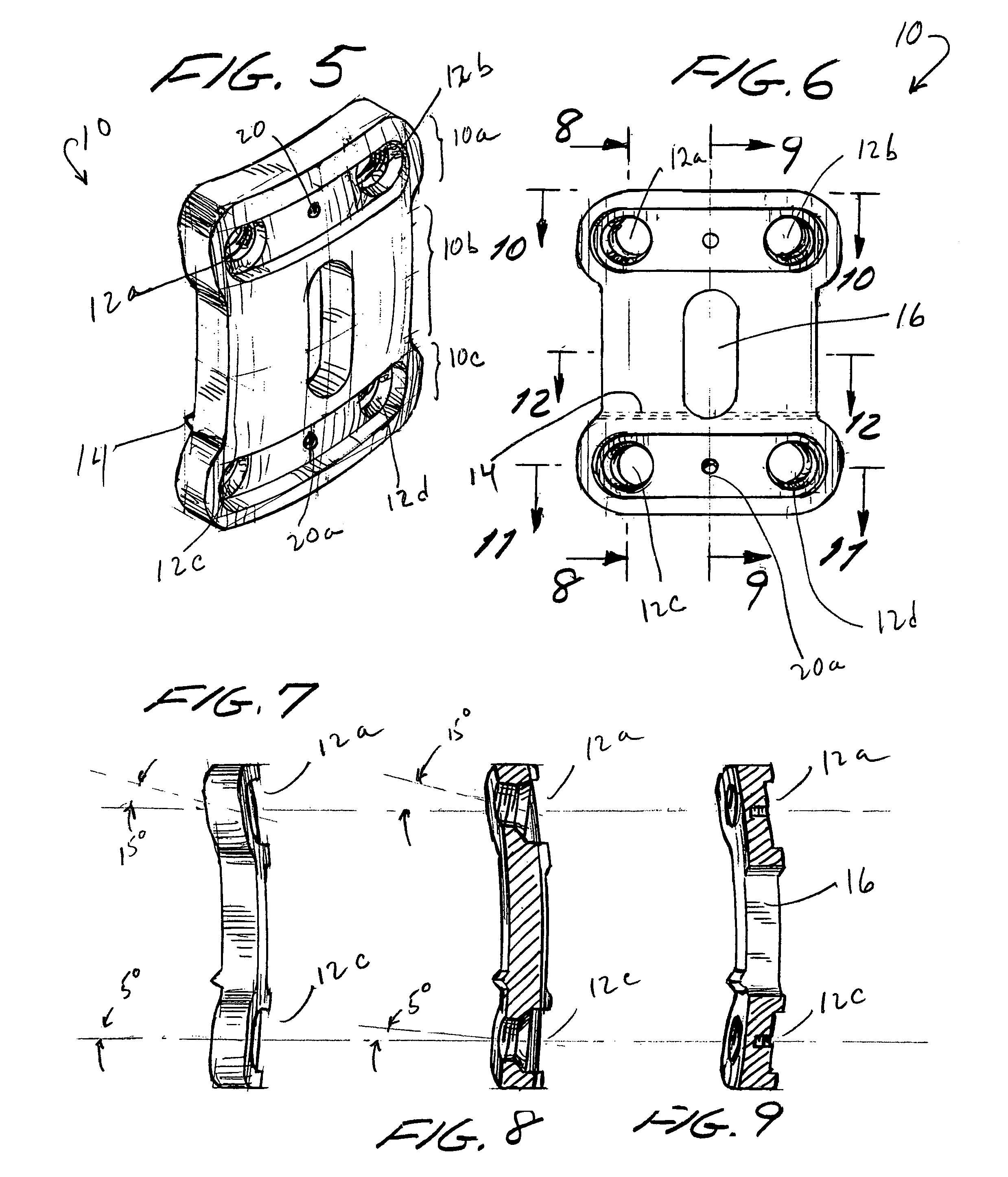Anterior lumbar lag plate
a technology of lag plate and anterior lumbar disc, which is applied in the field of anterior lumbar fusion, can solve the problems of high non-union rate and failure rate, difficult to achieve anterior lumbar fusion, and long procedures with significant morbidity, and achieve the effect of maximizing the effectiveness of the anterior lumbar fusion devi
- Summary
- Abstract
- Description
- Claims
- Application Information
AI Technical Summary
Benefits of technology
Problems solved by technology
Method used
Image
Examples
second embodiment
[0078]FIGS. 18, 19 and 20 illustrate the locking plate, namely plate 60 with its attachment screw 61 for engagement in threaded hole 20 of the lumbar plate 10x. FIG. 19 shows that the bottom of locking plate 60 has protrusions 62a, 62b. These protrusions extend down into the recess of the hex head screws 15a, 15b when the locking plate 60 is secured by screw 61 to the lumbar plate 10x. As with the previously described locking plate 52, when locking plate 60 is installed, it bars the screws 15a and 15b from unscrewing and rising axially, because the screw heads engage the bottom of the locking plate and cannot move axially, and because each protrusion 62a,62b extends into the recess of hex head screw 15a, 15b respectively.
[0079]D. Method of Employing the New Anterior Lumbar Lag Plate for Attachment to L4, L5, S1
[0080]The method of employing the new lumbar plate has been generally described in the above Summary of the Invention and in the section entitled Drill Guide Assembly, and fur...
first embodiment
[0083]3. Lumbar plate 10 with upper attached drill guide 30 is then placed upon the anterior surface of the adjacent vertebrae selected, which would be adjacent L4-S1 for the new lumbar plate,
[0084]4. The two holes 35 and 36 in upper drill guide 30 are aligned with the two holes 12a, 12b in lumbar plate 10, which are now positioned correctly for forming holes in L4. A drill or awl is extended through the drill guide hole 36 and lumbar plate hole 12b and thence into L4 forming the hole therein. The drill or awl is then removed and a self-threading bone screw 15b is driven into hole 12b. Next, hole 12a is similarly formed via drill guide 30 and a self-threading bone screw 15a is installed. A typical bone screw into L5 extends through the lumbar plate hole 12a with sufficient clearance to allow about 15° of angulation of the screw relative to the plate. Consequently, during subsequent healing and bone regeneration, the slight movement or orientation change of the plate will allow loadi...
PUM
 Login to View More
Login to View More Abstract
Description
Claims
Application Information
 Login to View More
Login to View More - R&D
- Intellectual Property
- Life Sciences
- Materials
- Tech Scout
- Unparalleled Data Quality
- Higher Quality Content
- 60% Fewer Hallucinations
Browse by: Latest US Patents, China's latest patents, Technical Efficacy Thesaurus, Application Domain, Technology Topic, Popular Technical Reports.
© 2025 PatSnap. All rights reserved.Legal|Privacy policy|Modern Slavery Act Transparency Statement|Sitemap|About US| Contact US: help@patsnap.com



